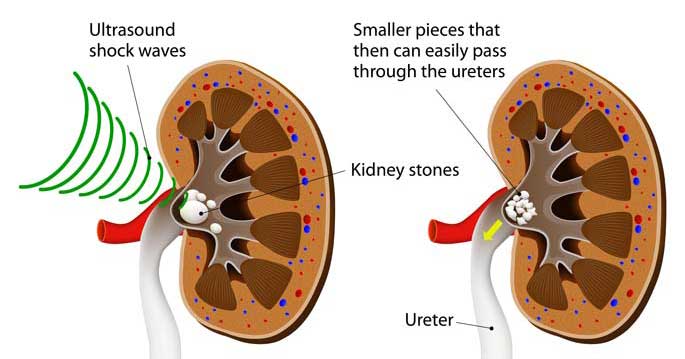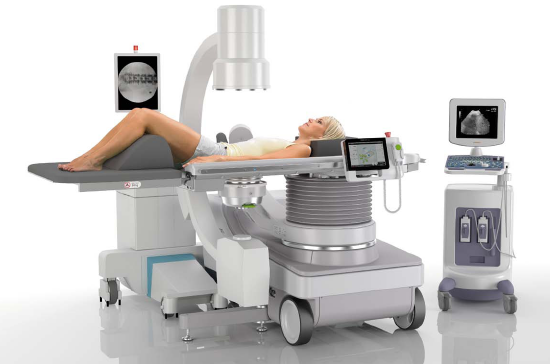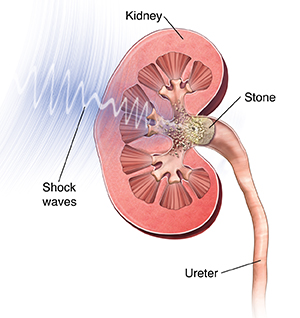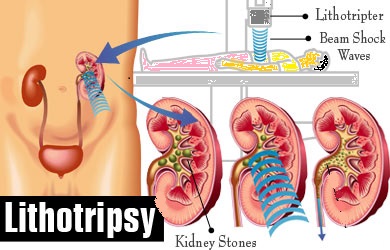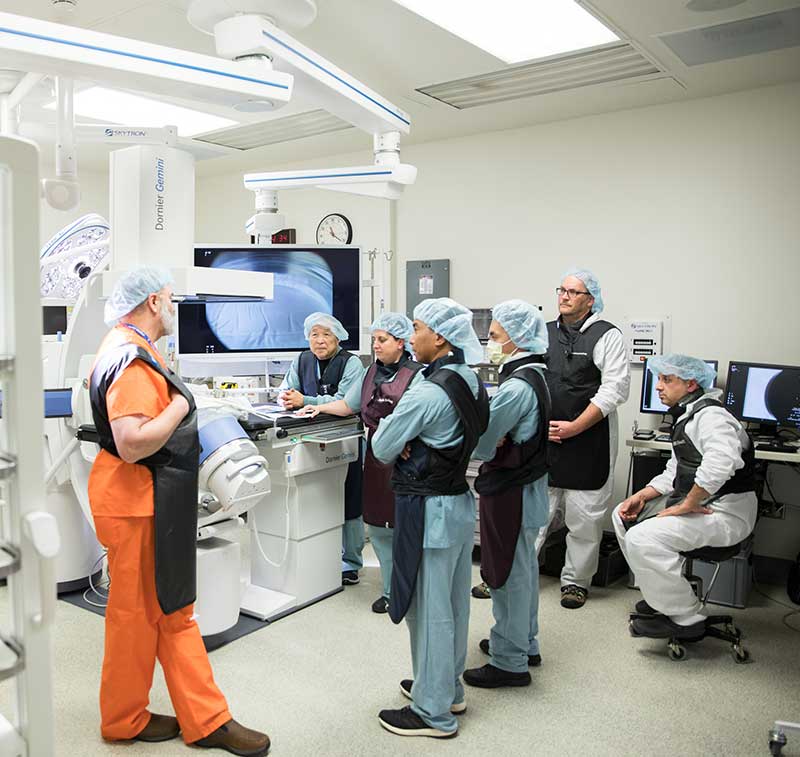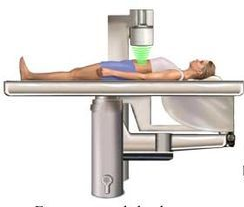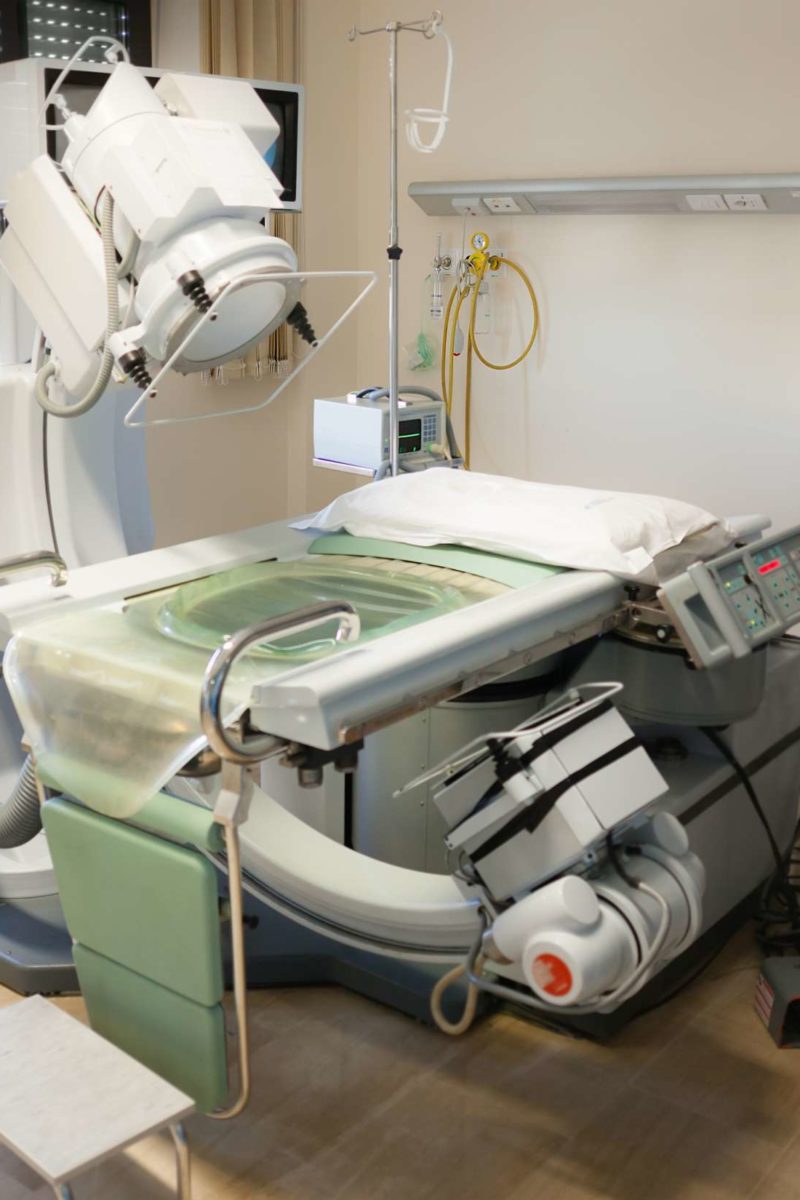Extracorporeal Shock Wave Lithotripsy
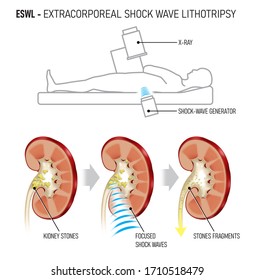
Lithotripsy is a procedure that uses shock waves or lasers to break down stones in the kidneys bladder or ureter.
Extracorporeal shock wave lithotripsy. What is shock wave lithotripsy. Shock wave lithotripsy swl is the most common treatment for kidney stones in the u s. Extracorporeal shock wave lithotripsy. You lie on a water filled cushion and the surgeon uses x rays or ultrasound tests to precisely locate the stone.
Have a bleeding disorder. Extracorporeal shock wave lithotripsy swl is a noninvasive procedure that uses shock waves to break stones in the kidney and ureter into pieces as small as grains of sand. Patients who once required major surgery to remove their stones could be treated with eswl and not even require an incision. What to expect after surgery.
The most common form of lithotripsy is extracorporeal shock wave lithotripsy eswl. Lt is sometimes called eswl. In the uk nice has found that the evidence for eswt in the majority of indications is conflicting as such. Extracorporeal shock wave lithotripsy eswl since the advent of extracorporeal shock wave lithotripsy eswl it has redefined the term minimally invasive treatment for stones.
The stones are broken into tiny pieces. More accurately this is a non invasive procedure where energy in the form of shock waves is channelled to the stone externally causing the stone to break up. As such eswl is the. The introduction of extracorporeal shock wave lithotripsy eswl in the early 1980s revolutionized the treatment of patients with kidney stone disease.
Extracorporeal means outside the body in this case it refers to the source of the shock waves. See a picture of eswl. Medications to avoid prior to surgery aspirin motrin ibuprofen advil alka seltzer vitamin e ticlid coumadin lovenox celebrex voltaren vioxx plavix and some other arthritis medications can cause bleeding and should be avoided one week prior to the date of surgery. In this article learn about how the procedure works the success rate how to.
The most common use of extracorporeal shockwave therapy eswt is for lithotripsy to treat kidney stones urinary calculosis and biliary calculi stones in the gallbladder or in the liver using an acoustic pulse it is also reported to be used for salivary stones and pancreatic stones. Extracorporeal shock wave lithotripsy eswl uses shock waves to break a kidney stone into small pieces that can more easily travel through the urinary tract and pass from the body. Extracorporeal shock wave lithotripsy eswl uses sound waves to break a kidney stone into small pieces that can more easily pass into the bladder and out of the body. Are pregnant because the shock waves and x rays may be harmful to the foetus.
Usually this procedure is not applicable if you.






